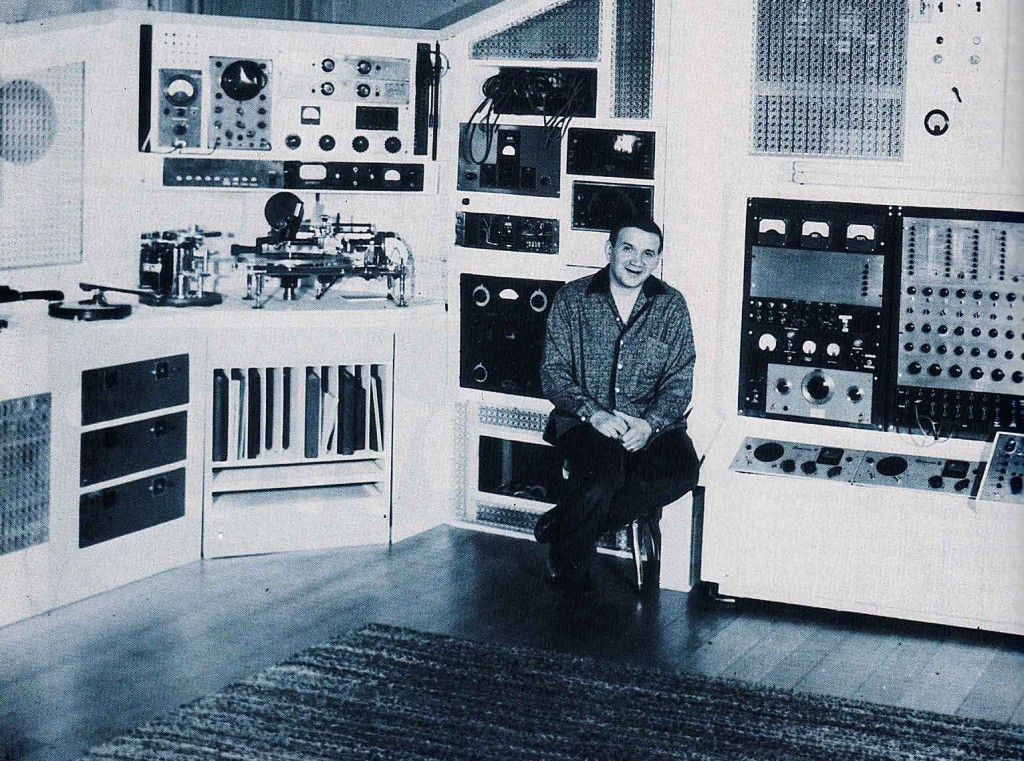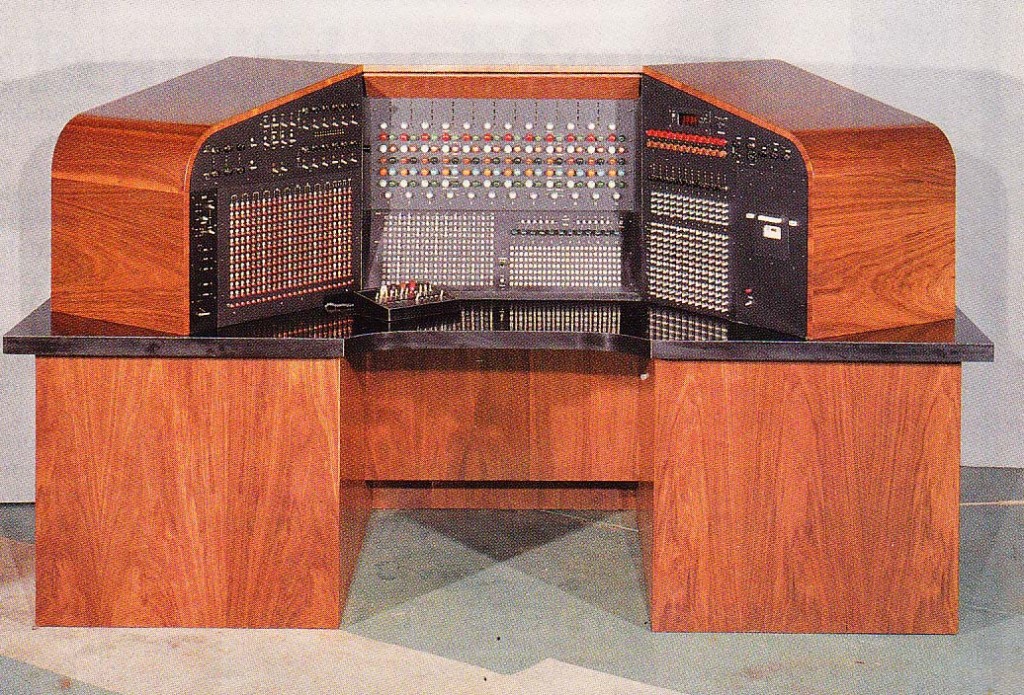 Raymond Scott in his home studio, 1955
Raymond Scott in his home studio, 1955
“The composer must bear in mind that the radio listener does not hear music directly. He hears it only after the sound has passed through a microphone, amplifiers, transmission lines, radio transmitter, receiving set, and, finally, the loud speaker apparatus itself.” —Raymond Scott, 1938
“Raymond Scott was definitely in the forefront of developing electronic music technology, and in the forefront of using it commercially as a musician.” – Bob Moog (SOURCE)
Raymond Scott was one of the true visionaries of early electronic music. You can read his fascinating story here. Being a huge fan of Eno, Tangerine Dream, and Klaus Schulze, it is remarkable to me that Scott was creating very similar compositions (often with his own homemade equipment) a decade or more before any of those artists. Many early electronic artists seemed interested in sound-as-music, noise-as-music – recall how Varese, Stockhausen, and Luening used electronics in their work. Others seemed content to replicate traditional harmonic and melodic patterns, using the newly available electronic voices as novel colors. For instance, Wendy Carlos (no link available due to the fact that Carlos seems stuck in the past as regards YouTube and modern content realities. Ironic, ain’t it). NEways,,, Scott, contrary to both of these approaches, walked a middle line – creating often wholly electronic music in which the harmonic, rhythmic, and melodic strategies were both pleasantly listenable but also very true to their synthetic nature: there’s really no attempt to shoehorn trumpet and piano lines into the new voices he established. To rephrase: the material is very much composed for these particular new voices, but in an approachable way.
 Above, Scott’s ‘Electronium’ music computer of 1965. Not too surprisingly, it is currently owned by Mark Mothersbaugh; a child to Scott’s marriage of esoteric electronics and pop sensibility if there was ever one. The ‘Electronium’ currently awaits restoration. Makes me cringe to just think about servicing that thing. Good luck fellas.
Above, Scott’s ‘Electronium’ music computer of 1965. Not too surprisingly, it is currently owned by Mark Mothersbaugh; a child to Scott’s marriage of esoteric electronics and pop sensibility if there was ever one. The ‘Electronium’ currently awaits restoration. Makes me cringe to just think about servicing that thing. Good luck fellas.
For more coverage of early electronic music pioneers on PS dot com, click here.